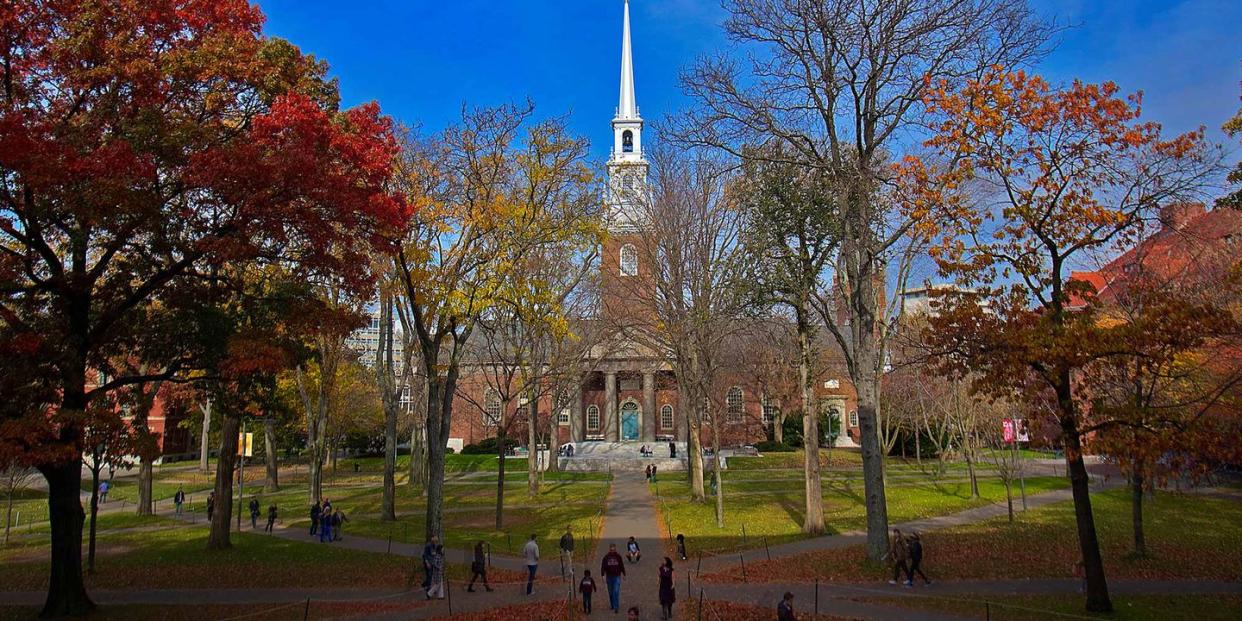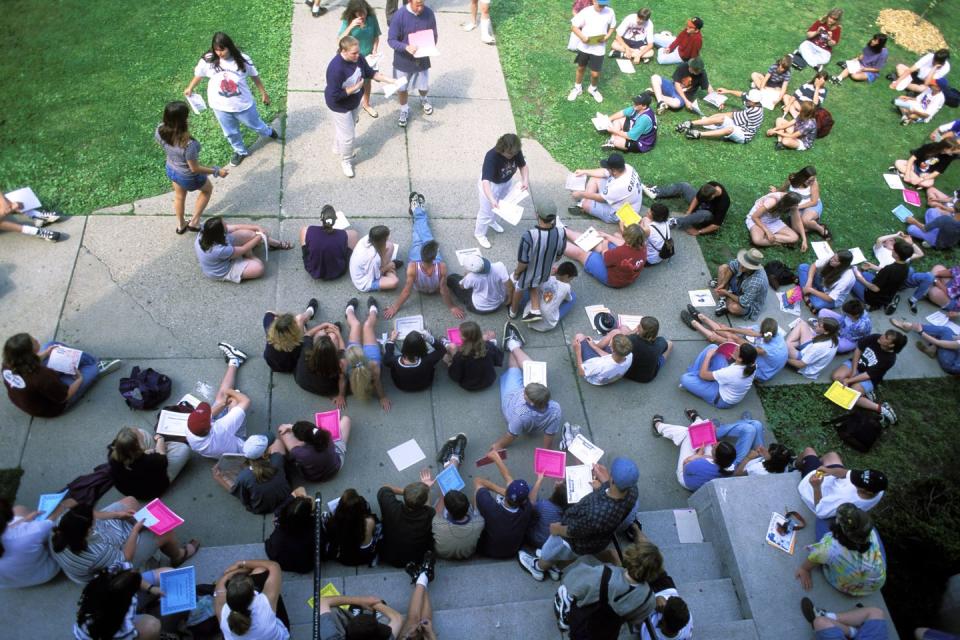Facebook Co-Founder Chris Hughes Explains Why There's No Substitute for the College Experience

At a moment when the cost of college is exploding, many high school students and their parents wonder if it’s worth the investment of time and money. I’m the Facebook co-founder who didn’t drop out of Harvard, and I think it was the right decision. Here’s why.
Harvard is one of a kind, but it has much in common with other liberal arts schools. Students read great books in small seminars, take classes across the humanities and sciences, and ultimately specialize in a field of interest.
But college for me was not a way station to a career in tech, finance, or consulting. It was an experience that shaped my worldview and character. Professors asked me to read ancient stories that showed me the world through other people’s eyes and left me feeling connected to those I’d thought I had little in common with. That kind of moral imagination has made me a better friend, husband, parent, and citizen.
College asked me to grapple with big philosophical questions like “What can I really know?” and “What do I owe others?” These questions sounded highfalutin and theoretical until I discovered that wrestling with them helped me make more thoughtful decisions about what work to pursue, whom to marry, and what to teach our son.
College taught me to be curious about why the world works the way it does and to be skeptical of conventional wisdom. Professors asked me to analyze what caused the French Revolution and the Great Depression, and I began to see how different cultural, political, and economic forces created humanity’s greatest moments of crisis and opportunity. These lessons remain highly relevant today.
And maybe most important for an only child like me, college taught me how to build social capital. Through long conversations over soggy chicken nuggets, I made connections that endure through the ups and downs of life. Clearly those connections were particularly valuable in my case-college was where I met Mark Zuckerberg and where we started Facebook-but even though my case may be extreme, in that respect it’s not unusual.

On the flip side, the relationships forged in college can be so strong that they lead to the exclusion of groups who traditionally haven’t had a chance to benefit from a liberal arts education-a problem university leaders can fix by intentionally creating a student body that reflects our country’s socioeconomic classes and racial demographics.
More than ever, we need a new generation of leaders-in our companies, in government, in the arts, and in civil society-wrestling with how they can make our country better. We have plenty of investment bankers and app creators. What we need are people who think creatively, who listen to arguments they disagree with, and who can see from multiple perspectives with history as a guide.
We shouldn’t be encouraging kids to drop out of school to tinker in the privacy of their own garages; we should be encouraging them to learn values that will make them responsible 21st-century citizens.
People say college is too expensive, and they're right. We should by all means make it cheaper and more accessible. But we should also assign greater value to all that the experience gives us, not just the economic return.
This story appears in the August 2018 issue of Town & Country.
Subscribe Now
You Might Also Like

